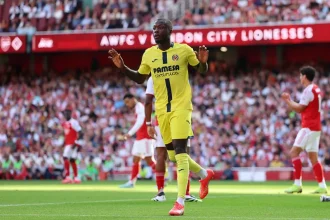Israel announced on Saturday that it had eliminated a senior Iranian commander amid ongoing reciprocal airstrikes in a war that has now stretched beyond a week.
Meanwhile, Tehran declared that it would not engage in discussions over its nuclear programme while under attack.
According to Israeli Defence Minister Israel Katz, Saeed Izadi, the head of the Palestine Corps within the Quds Force, the overseas wing of Iran’s Islamic Revolutionary Guard Corps was killed in a strike on an apartment in Qom. Katz described the operation as a “major achievement for Israeli intelligence and the Air Force,” claiming Izadi had supported Hamas with funding and weapons ahead of the group’s deadly October 7, 2023, assault on Israel, which sparked the Gaza war.
Iranian reports confirmed that five Revolutionary Guards personnel were killed in strikes on Khorramabad, though there was no mention of Izadi. Notably, Izadi is listed under sanctions by both the U.S. and U.K.
Iranian media earlier reported an Israeli strike in Qom that resulted in the death of a 16-year-old and injuries to two others.
According to state-run Nour News, citing Iran’s health ministry, Israeli strikes since June 13 have killed at least 430 people and injured around 3,500 in the country.
In contrast, local Israeli authorities say 24 civilians have died due to Iranian missile attacks—the worst direct clash between the longtime foes.
While Israel accuses Iran of nearing nuclear weapons capability, Iran maintains that its atomic efforts serve only peaceful purposes.
Israel is widely believed to possess nuclear arms, though it has never officially acknowledged them.
Tehran: No Diplomacy Amid Airstrikes
Speaking in Istanbul during an Organisation of Islamic Cooperation meeting, Iranian Foreign Minister Abbas Araqchi insisted Iran would not return to nuclear negotiations while under fire.
He said, “It is obvious that I can’t go to negotiations with the U.S. when our people are under bombardments under the support of the U.S.”
Araqchi also claimed U.S. fingerprints were visible in the Israeli attacks, demanding they stop before diplomacy can resume.
A day earlier in Geneva, he met with European ministers in an attempt to revive stalled negotiations, but no breakthrough was reported.
United States President, Donald Trump, stated it would take “up to two weeks” to determine whether the U.S. should join the conflict on Israel’s side, hoping instead for diplomacy to prevail. Trump claimed Iran might acquire nuclear weapons “within a matter of weeks, or certainly within a matter of months,” asserting: “We can’t let that happen.”
Iran’s Fars News Agency reported Israeli strikes targeting the Isfahan nuclear facility, one of Iran’s largest. While no radiation leaks were detected, Israel confirmed it had hit various missile storage and launch sites.
Prominent Iranian Figures Targeted
Ali Shamkhani, a key figure close to Iran’s Supreme Leader, said he narrowly survived an Israeli strike.
“It was my fate to stay with a wounded body, so I stay to continue to be the reason for the enemy’s hostility,” he declared in a statement via state media.
Early Saturday, Israeli authorities sounded air raid sirens across central Israel and the West Bank, warning of incoming missiles. Interceptions lit the sky over Tel Aviv as the Iron Dome system engaged. No casualties were reported in those incidents.
Meanwhile, the U.S.-based Human Rights Activists News Agency reported a higher Iranian death toll than official figures, citing 639 fatalities, including high-ranking military personnel and nuclear scientists.
Israel claimed responsibility for the death of another Quds Force commander, Benham Shariyari, during an overnight raid. Nour News identified 15 Iranian air defence personnel killed in recent strikes.
Iran’s Health Minister, Mohammadreza Zafarqandi, accused Israel of hitting three hospitals, killing two healthcare workers and a child, and also attacking six ambulances.
When questioned, an Israeli military official said their targets were strictly military, though acknowledged possible unintended damage.
A missile fired from Iran struck a hospital in Beersheba, southern Israel, on Thursday.
International Calls for Calm
During the OIC summit, Turkish President Tayyip Erdogan condemned Israel’s strikes, saying they were timed to derail diplomatic talks and reflected a lack of interest in peaceful resolution. Calls for immediate de-escalation also came from China and Russia.
Despite a diplomatic push in Geneva, progress remained elusive. Trump remarked that Iran seemed unwilling to talk to Europe, preferring direct engagement with the U.S. “They want to speak to us,” he said.
He noted that he wouldn’t pressure Israel to scale back its offensive, saying the country was “winning.” However, he added, “But we’re ready, willing and able, and we’ve been speaking to Iran, and we’ll see what happens.”
Israel maintains that its military campaign will not end until Iran’s nuclear and missile capabilities are dismantled, citing them as existential threats.
A senior Iranian official told Reuters that while Tehran might consider capping uranium enrichment levels, it would oppose any demands to halt enrichment entirely, particularly while under attack from Israel.







